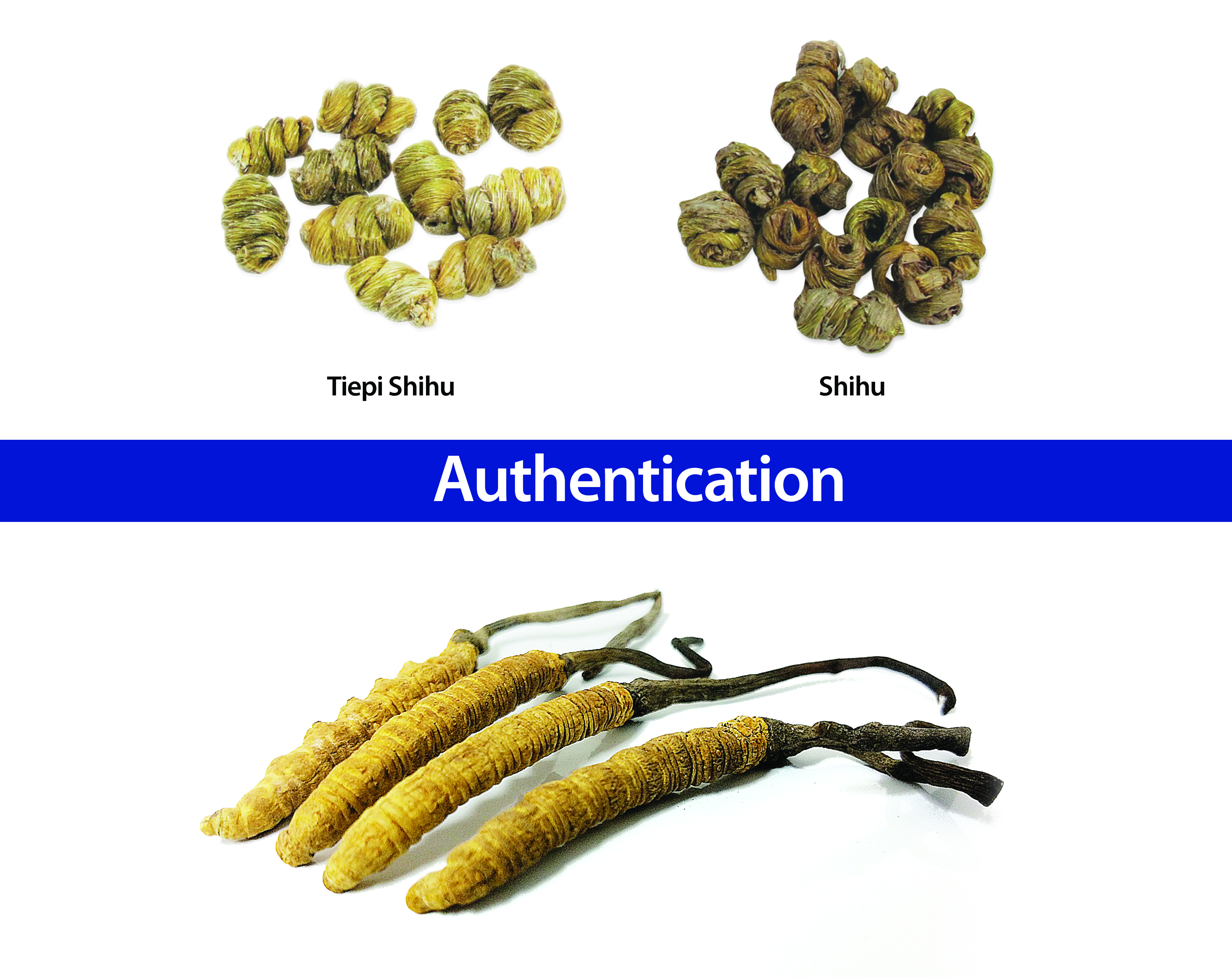Accurate Authentication and Quality Control Method of Herbal Medicines

KEY INFORMATION
TECHNOLOGY OVERVIEW
As an increase in people’s awareness of health, traditional Chinese medicine becomes more and more popular. Among many of the Chinese medicines, Tiepi Shihu (i.e. one of the types of Dendrobium) and Cordyceps sinensis are two of the most expensive products.
Dendrobium is one of the largest genera in the plant family Orchidaceae, and more than 1,100 species of Dendrobium have been identified. Among them, Tiepi Shihu is traditionally recognised as the best Shihu for tonic purposes, such as nourishing the stomach, protecting the throat and eyes. The uncharacteristic appearance and high price of Tiepi Shihu could lead to the occurrence of adulterants, confusion of species and counterfeits. Therefore, authentication and quality analysis of Tiepi Shihu is crucial for ensuring safety and efficacy.
One of the conventional authentication methods greatly depends on the experience of botanical experts and subjective judgement; and the other is based on DNA bio-coding, which is very expensive and time-consuming. These existing methodologies are extremely intricate, difficult and time-consuming, and therefore they are not suitable for routine quality control.
This patented technology aims to target some unique polysaccharide markers which can be successfully applied to the authentication of Tiepi Shihu and Cordyceps products. We have identified that only Tiepi Shihu or Cordyceps sample shows its unique peak in the high molecular size range by using high-performance gel permeation chromatography (HPGPC). Apart from authentication, this method can assess the herb’s quality by distinguishing the quantity of the polysaccharide.
TECHNOLOGY FEATURES & SPECIFICATIONS
The key of this technology is to provide a low cost, efficient, stable and convenient tool with reduced uncertainties in the qualitative and quantitative evaluation of Dendrobium officinale. The technology is now being adopted by the industry for both qualitative and quantitative authentication of herbal products. The technology has been successfully applied to the authentication of Cordyceps and extended to other products such as edible bird’s nest and Ejiao.
This technology provides a new detection method with the following advantages:
- High specificity: It can accurately distinguish the genuine product from other varieties.
- Quick detection: It only takes about one hour for detection. The larger the sample size, the shorter the average measurement time for each sample. High-throughput detection can be achieved, and it is suitable for large-scale detection by enterprises.
- Low cost: The detection process is simple, and no other reagents are needed. Owing to the high sensitivity, tens of milligrams of samples are adequate for the detection. This greatly reduces the detection cost of precious Chinese medicines.
POTENTIAL APPLICATIONS
The invention is based on the polysaccharide marker authentication and can be successfully applied to the authentication of expensive Chinese medicine such as Tiepi Shihu and Cordyceps samples. Currently, this is being adopted by the industry for both qualitative and quantitative authentication of these expensive Chinese medicines.
A customer base platform is currently being developed to provide more services for authentication of more different types of expensive Chinese medicines such as edible bird’s nest and Ejiao.
Market Trends & Opportunities
The annual output of Tiepi Shihu and Cordyceps in China have reached 27,000 tons and 100 tons respectively. The market sales of Cordyceps has reached 41.6 billion RMB in 2017. So, the demand is huge.
Unique Value Proposition
It facilitates the upgrading of the traditional Chinese medicine industry with the support of innovative technologies and helps to boost consumer confidence in the long run.
